Cold war artificial intelligence: a threat to all mankind?
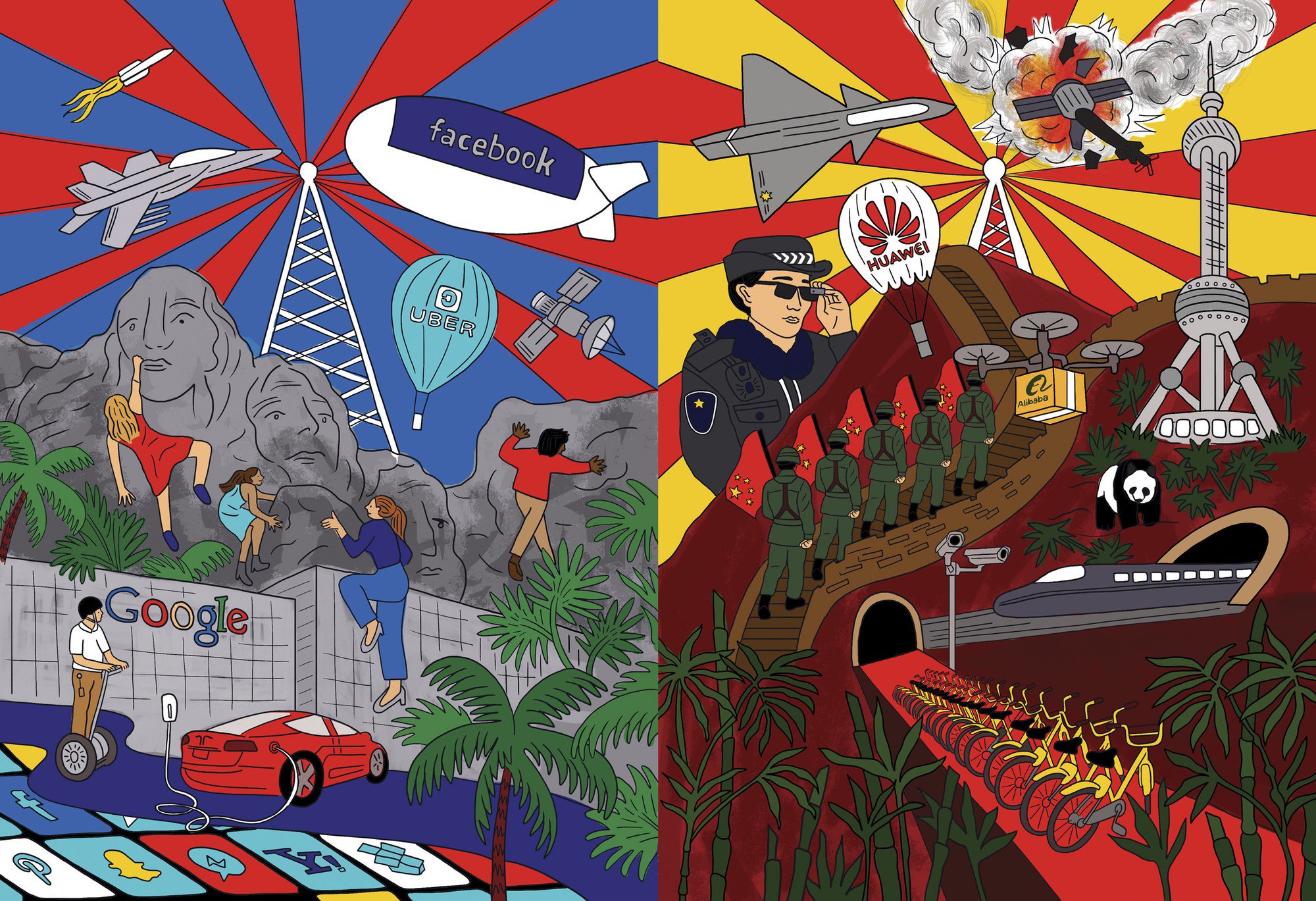 Source:
Source:
In the Spring of 2016 artificial intelligence system called AlphaGo defeated the world champion in the game of go in the match at the Four Seasons hotel in Seoul. The world reacted immediately. Most Americans and Europeans are not familiar with go, the ancient Asian game that involves placing black and white pebbles on a wooden Board. The technology that emerged victorious was even more incomprehensible: a form of artificial intelligence operating on the principles of machine learning, where training the computer to recognize regularities and patterns to it feed large amounts of data. He is able to make their own strategic decisions.
However, the essence of the story more or less dispersed around the world and became recognizable. Computers have already mastered checkers and chess; now they emerged victorious and in a more complex game. The geeks happy, but most people didn't care. Tera Lyons from the White house, one of the advisors for science and technology ex-US President Barack Obama, recalls how her team celebrated victory on the fourth floor of the Executive building of Eisenhower.
"We saw that technology won," he says. "The next day at the White house forgot about it".
theAmerican Artificial intelligence
China, in contrast, 280 million people watched the victory AlphaGo. For them it was very important that the car, owned by a California company Alphabet, parent company Google has mastered the game, which appeared in Asia more than 2,500 years ago. Americans are not even playing go. And yet they somehow reached her superiority. Kai-Fu Lee, the pioneer of the field of artificial intelligence, recalls how he was asked to comment about the match almost all the major TV company in the country. Until then, he quietly invested in a Chinese company that develops artificial intelligence. But seeing all this attention, he began to boldly spread the investment strategy for its venture Fund for the artificial intelligence.
"We said, well, after this match, the whole country knows about AI. We grow".
Beijing victory machine thundered a warning shot into the air. This impression only intensified over the next few months, when the Obama administration published a series of reports on the benefits and risks of AI. The documents were made a series of recommendations for government action, both to prevent potential loss of jobs due to automation and investment in the development of machine learning. A group of senior political winners of the Chinese scientific and technological bureaucracy, which has worked on its own plan for AI thought that sees the signs of the appearance of a deliberate American strategy — and needed as soon as possible to give an answer, to act.
In may 2017 AlphaGo won again, this time over Ke JI, Chinese master, having conquered the top of the world. Two months later, China introduced a plan for the development of artificial intelligence in the next generation, a document setting out its strategy for becoming a world leader in the field of AI by 2030. With this clear signal from Beijing began to spin the giant machine industrial axis of the state. Other Chinese government ministries shortly presented their plans based on the outline for Beijing's planners. Appeared expert team of advisors and industry alliances, local governments across China started funding startups AI.
Chinese tech giants also moved. Alibaba, the giant online store, started the development of "Urban brain" for a new special economic zone, planned around 100 kilometers South-West of Beijing. In Hangzhou, the company has collected data from thousands of street cameras and used them to control traffic lights with AI, optimizing the traffic as well as AlphaGo optimized victorious moves on the go Board; now Alibaba could help in the development of the AI for the new infrastructure of the metropolis from scratch.
18 Oct 2017 China's President XI Jinping stood in front of 2300 colleagues surrounded by the vast red of the drapery and in the background a giant Golden hammer and sickle. Outlining its plans for the future of the party for nearly three and a half hours, he called artificial intelligence, big data and Internet the main technologies that could transform China's economy into a developed industrial economy in the coming decades. For the first time many of these technologies clearly came from the lips of the President on the Communist party Congress, which takes place every five years.
Just a few months the Chinese government has provided its citizens with a new vision of the future and made it clear that he would act quickly. "If you compare AlphaGo with the launch of the «Satellite», the plan of the Chinese government for AI was the famous speech of President John F. Kennedy calling for America to land a man on the moon", says Kai-Fu Lee in his new book, "Superpower AI".
Meanwhile, as Beijing accelerates, the U.S. government is slowing down. After President trump took office, reports on the AI of the era Obama was sent to an archive site. In March 2017 the Secretary of the Treasury Steven Mnuchin said that the idea of people losing jobs due to AI "is not even on our radar screen". She could be a threat in 50 or 100 years. In the same year, China has taken on the task to create an industry AI$ 150 billion by 2030.
Very slowly, pushed mainly by the Pentagon, the administration trump spoke about the national initiatives of the AI and began to Fund it. In may the Minister of defence James Mattis read an article by Henry Kissinger in The Atlantic, in which he warned that the AI develops so fast that it may soon surpass human intelligence and creativity. The result will be the end of Education; he called for a government Commission to study the issue.
Many experts in the field of AI shushed on Kissinger and his article for what he extrapolated a very dark and narrow prospects of large and still young field. Mattis, however, the referred article in a note to President trump. In the same month, Michael Kratsios, senior Advisor to trump technology, organized a summit on the topic of AI. In an interview with Wired this summer Kratsios said that the White house fully supports the research of the AI and trying to figure out "what the government can do to squeeze more." In June, Ivanka trump tweeted a clipping from an article by Kissinger, noting his opinion about the "impending technological revolution, the consequences of which we are not yet able to evaluate fully".
And if the White house trump slowly come to understand the value and potential of AI opponents he found much faster. By mid-summer, the talk of "arms race new cold war" for artificial intelligence are increasingly finding their place in the American media.
At the dawn of a new phase in the digital revolution, the two most powerful countries of the world are rapidly moving into positions of competitive exclusion, as the players on the Board. And at stake is not just technological superiority of the United States. At the time of greatest anxiety about the state of modern liberal democracy, AI in China threatens to become an incredibly powerful incentive for authoritarian pressure. Is the arc of the digital revolution goes in the direction of tyranny, is there any way to prevent this?
theNew cold war
After the cold war Western thinking was built on two pillars: the liberal democracy must be spread throughout the world, and sail for this distribution will be digital. Censorship, media consolidation and propaganda that worked in the era of the Soviet autocracy, simply could not exist in the Internet age. The world wide web gave people free and unfettered access to global information. It allows citizens to organize to hold the government accountable and to get out from under predatory wing of the state.
Most confidence in the liberating effect of technology was the technology companies: Twitter was one of the leaders, "wing freedom party freedom of speech". Facebook wanted to make the world more open and connected; Google, founded by a native of the Soviet Union, wanted to organize the world's information and make it accessible to all.
As the era of social media rose to his feet, the pillars of faith of theoptimist seemed unshakable. In 2009, during the Iranian "green revolution" many have wondered how the organizers of the protests on Twitter were able to circumvent the silence of the state media. A year later during the Arab spring had toppled the regimes in Tunisia and Egypt, protests erupted in the middle East and it will spread virus in social media because it was natural. "If you want to free a society, all you need is Internet," says Value Ghonim, a member of the Egyptian wing of Google which has created a home group in Facebook, which helped to unite dissidents in Cairo.
However, it took a lot of time to the Arab spring has turned into winter. A few weeks after the resignation of President Hosni Mubarak, Ghonim saw that the activists began to quarrel among themselves. Social media have reinforced the worst instincts of each. "It was obvious that Central voice becoming quieter and quieter, and the extreme voices are becoming louder and louder," he recalls. The activists, who were vulgar or attacking other groups, or responded with anger, getting more likes and shares. This gave them more influence and made a role model for more moderate people. Why write something conciliatory, if no one will read it on Facebook. It is better to write something dirty, I will read the millions. Persecuted depressed. Tools that collected protestors together, tear them to pieces.
In the end, Egypt has elected the government in the face of "Muslim Brothers", traditionalist political machine that played a small role in the original clash in Tahrir square. Then in 2013, the military has successfully conducted the coup d'etat. Shortly after, Chase moved to California, where he tried to create a platform for social networking, in which the mind would be above emotion. But it was very difficult to take away users from Twitter and Facebook, so the project was short-lived. Meanwhile, the military government of Egypt passed a law allowing him to remove his critics from social networks.
Of Course, all this is happening not only in Egypt and the middle East. In a very short time the spread of liberalism and technology has become a crisis of faith for both. Overall, the number of liberal democracies in the world within ten years has been steadily declining. According to the Freedom House in 71 countries last year saw a decline of political rights and freedoms of citizens; only 35 countries have been improving.
Although a crisisdemocracy has many causes, social networking platforms seem to be the main culprit. The recent wave of anti-establishment and Patriotic political movements — Donald trump in the United States, "Brickset" in the UK, the revival of the right wing in Germany, Italy, Eastern Europe — showed not only a deep disappointment in relation to global rules and institutions of Western democracy, but an automated media landscape that rewards demagoguery clicks. Political views became more polarized, people have become more gregarious, civic nationalism is falling apart.
And that's what we have: instead of admiring the way the social platform to spread democracy, we are busy assessing the extent to which they corrode.
theChina watches
In China, government officials watched the Arab spring with care and concern. Beijing is already the world's most advanced Internet control, dynamically blocking a huge number of foreign web domains, including Google. The country is now adorned its Great firewall even more barbed wire. China has developed new ways point disable Internet access in areas inside cities, including in the large block in the heart of Beijing, where there was a risk of the demonstrations. He also digitally protected all of Xinjiang after heavy protests that have spread across the Internet. Beijing may have already tried to create a national "switch" for the Internet.
This is just full of a cell version of the Internet doesn't sound like the original dream of the World Wide Web, nevertheless, working and thriving. To date, China has about 800 million people surf the Internet, exchange chat messages and make purchases outside of the Great firewall — almost as many people living in the United States and Europe combined. And for many Chinese growing middle class means that online censorship has become much easier to bear. Give me liberty or money, underline.
Authoritarianism in China, which has doubled under the leadership of si, of course did not prevent the Chinese technology industry. Over the last decade, leading technology companies in China began to dominate their domestic markets and compete with the world. They expanded through acquisitions in South-East Asia. Baidu and Tencent have created research centres in the US, and Huawei sells advanced network hardware in Europe. The old silk road paved with Chinese fibre optic cables and network equipment.
China is better than all the other countries have shown that with some adjustments autocracy itself is quite compatible with the age of the Internet. But these adjustments have led to the fact that the Internet itself started to break into two continents. There is a free, lightly regulated Internet, which is dominated by the geeks of Silicon valley. Is the Chinese authoritarian alternative, based on the massive domestic technogiant, such as innovative as their Western counterparts.
Today, China is not just protected against the virus of dissent, editing the problem areas of the Internet; the government is actively using technology as a tool of control. In the cities of China, including Xinjiang, the authorities face software face-recognition and other technologies, based on artificial intelligence for safety. In may, recognizing the face of the camera in the sports centre Czeczeni in Zhejiang have helped to arrest the fugitive, who was present at the concert. He was wanted in 2015 for alleged theft of potatoes on more than 17 000 dollars. Chinese police cloud system was created to find seven categories of people, including those who "undermines stability". The country also seeks to create a system that will provide each citizen and each company's social credit rating: imagine that you will have your score reflects your spending habits, your driving history and attitude towards the policy.
The Fundamental force that drives this change — the transition from defense to attack is the power of technology. At the beginning of the revolution in communications has made computers available to the masses. The device merged into a giant global network and decreased to the size of your palm. It was a revolution that empowered the individual — alone programmer, which can do literally in your pocket, the academic who may have access to endless research, dissident new and powerful way of organizing resistance.
The Modern stage of the digital revolution is somewhat different. The supercomputer in your pocket is also a guiding device. It tracks your "likes", keeps a record of all your conversations, your purchases, read articles and visited places. Your fridge, thermostat, smart watches, car more and more information is sent to the headquarters of the company. In the future, security cameras will be to monitor how pupils dilate your eyes and the sensors on the wall will monitor the temperature of your body.
In today's digital world, both in China and in the West, power comes from control of data, their understanding and use, allows you to influence people's behavior. This power will only grow, when there will be next generation mobile networks. Remember how magical it seemed to the ability to view real web pages on the iPhone the second generation? It was 3G, mobilestandard, widely spread in the middle of 2000-ies. Modern 4G network several times faster. 5G will be much faster. And when we can do something faster, we do more, and therefore, the data is accumulated.
Most people have hard to understand, not to mention the fact to monitor how much information about them is collected. And data aggregators will be even more when we enter in the age of AI.
theWhat does Russia think about artificial intelligence?
The President of the Russian Federation considers that "the one who will become the leader in this field (AI), will become ruler of the world".
But the phrase of Vladimir Putin tends to exaggerate what is happening. AI is not a mountain that can win a separate nation, and not the hydrogen bomb, which individual countries will develop first. AI is just the principle of the computers; is a broad term that describes systems that learn by example or follow the rules to make independent decisions. However, it is still the most important breakthrough in computer science for a generation. Sundar Pichai, Google CEO, compared it with the discovery of electricity or fire.
A Country which strategically and skillfully implements the technology AI in your workforce is likely to grow faster even with the violations that will cause AI. The city will work more efficiently, because self-driving cars and smart infrastructure will reduce traffic jams. Large businesses will be the best card of the customer behavior. People will live longer, as the AI will revolutionize the diagnosis and treatment of diseases. The military will have more force because Autonomous weapons will replace soldiers on the battlefield and pilots in the sky, and cybergroup will wage a digital war.
"I can't imagine any mission that it would be impossible to hold better or faster if properly integrate with AI," said will Roper, assistant Secretary of the U.S. air force.
These benefits can be fraught with interest. So far, at least, the AI is a centralizing force for companies and countries. The more data you collect, the better systems you can create, and the best systems allow to collect more data. "AI will be concentrated. You will need a lot of data and lots of computing power," says Tim Hwang, head of the ethics and management artificial intelligence at Harvard and the Massachusetts Institute of technology.
China has two fundamental advantages over the US in building a strong infrastructure of artificial intelligence, and they both relate to the benefits that have authoritarian States, but not democratic. The first is the huge amount of data generated by Chinese technologytime. Imagine how much data Facebook collects from its users and how this data can help the algorithms; now imagine that the app Tencent — WeChat works exactly as Facebook, Twitter and online banking all in one. In China, almost three times more mobile customers than in the United States, and these phone users use mobile payments. China, according to The Economist, is Saudi Arabia from the point of view of the data. Data protection is developing in China but still weaker than in the US, and is much weaker than in Europe, which allows data aggregators to more easily use the data they receive. And the government can access personal data for reasons of public or national security without any legal restrictions faced by a democratic state.
Of Course, data that's not all: every technical system depends on a whole set of tools, from software to processors and the people who analyze the results. And there are also promising the topics in AI, such as reinforcement learning, which generates its own data from scratch using a lot of processing power. China also has the second big advantage, moving in the era of the AI, and the relationship between his major companies and the government. In China private sector companies at the forefront of AI must take into account the priorities of the si. In accordance with the priorities of the si within the company expanded the Communist party committees. In November last year, China called Baidu, Alibaba, Tencent and iFlytek, a Chinese company that develops software for voice recognition of the inaugural members of the "national team in the field of AI". The message was obvious: do invest, and the government will help you to conquer markets not only in China but also outside it.
During that first cold war, the US relied on companies like Lockheed, Northrop and Raytheon, for development of advanced strategic technologies. Technically, these companies were private. But in practice, their vital defense mission gave them quasipublic entity. (Long before the phrase "too big to fail" banks was described, it was used by Lockheed).
Let's just fast-forward to today, and will see companies that are at the forefront of artificial intelligence — Google, Facebook, Amazon, Apple and Microsoft — do not attach the flags to the lapels of their jackets. Last spring, Google has insisted that Google ceased to cooperate with the Pentagon to Maven project. The idea was to use the AI for image recognition in the missions of the Ministry of defence. The ultimate guide Google obeyed. Officials of the Ministry of defence were very disappointed, especially when you consider that Google has a numberpartnerships with Chinese technology companies. "It is strange to work with Chinese companies, though it is not a direct channel to the Chinese military," says former Minister of defense Ashton Carter, "and not wanting to work with the American military, which is much more transparent and reflect the values of our society. Of course, we are imperfect, but we are not a dictatorship."
thethe Cold war can be avoided
The Cold war in 1945 was not inevitable. The United States and the Soviet Union were allies during the Second world war, but then a series of decisions and circumstances during the five-year period started the conflict and locked him in the loop. Just as we see today, and the digital revolution could not play in favor of democracy. Similarly, today it seems inevitable that AI will maintain the global authoritarianism to the eternal displeasure of liberalism. If you play this scenario, because a certain series of decisions and circumstances did not allow him to and anticipated.
In the era of the first two ideological enemy created competing geopolitical blocs that were actually incompatible. USA fence from the Soviet bloc, and Vice versa. The same thing could easily happen again today, with terrifying consequences. A new cold war, which gradually isolates the Chinese and American technology segments, will be fueled by the fact that American companies are highly dependent on the Chinese market in their income. At the same time, it can happen that what a warning: one party can surprise the other strategic breakthrough in the field of AI or quantum computing.
Currently, the preservation of openness with China to a certain extent, is the best protection from the growth of techno-authoritarian bloc. However, American leaders do not favour this.
Just six months after the inauguration of Donald trump and announced it was "American carnage," the President's administration launched a large-scale investigation into the trading practices of China and alleged theft of us technology in cyberspace. This investigation has led to a growing trade war when the United States began to establish tariffs on imported Chinese goods worth billions of dollars-and new restrictions on exports and investing in technology that China considers important for AI, and its production ambitions.
The confrontation does not only affect trade. The administration trump builds official US policy to protect the "national database of innovation" holds strong technology and talents of America from China and other foreign economic predators. In January Axios published a leak from the presentation at the White house, which was recommended to build the 5G network that will exclude China, to Beijing could not "occupy the commanding heights of information domain". The presentation compared the dominance in the data region in the 21st century with the race during the Second world war for the creation of the atomic bomb. Then, in April, the U.S. Department of Commerce, visited ZTE, a leading Chinese manufacturing company of telecommunications equipment and forbade her to do business with American suppliers for seven years, said that ZTE violated the terms of the settlement sanctions. Later the ban was lifted.
For American hawks, the prospect that China can dominate in the field of 5G and AI, this is a nightmare scenario. At the same time, the growing response of Washington to the technological ambitions of China has forced XI Jinping even more determined to wean his country from Western technologies.
This approach is quite different from the one who ruled the technology sector for 30 years, favouring the intricate weaves merchants in hardware and software. Shortly before inauguratsii trump Jack MA, Chairman of Alibaba, has promised to create one million jobs in the United States. By September 2018, he was forced to admit that it is now unthinkable.
Global work in the field of AI has long been happening in three areas: research departments, corporations and the armed forces. The first sphere was always marked by openness and cooperation; the second also, but to a lesser degree. Scientists freely share their work. Microsoft has trained many of the best AI researchers in China and helped many promising startups in the field of AI. Alibaba, Baidu, Tencent is hiring U.S. engineers from Silicon valley and Seattle. The progress made in Shanghai, can save lives in new York. But fears of the national security services are imposed on commercial considerations. At present, the political momentum breaks the technological segments of the two countries to such an extent that even cooperation between researchers and corporations manage to suppress. The split could well determine how the battle lines are drawn between democracy and authoritarianism.
theWhat will happen in 2022?
Imagine that four years have passed. The U.S. confrontational policy was continued and China has refused to concede. Huawei and ZTE left of the USA networks and key allies in the West. Through investments and thefts, Beijing has reduced its dependence on the us semiconductors. Competing technological superpower are unable to develop common standards. American and Chinese scientists are increasingly taking in their cutting-edge research in the field of AI in government safes, instead of sharing them at international conferences. Other countries — France and Russia, for example — trying to build a domesticthe technology industry on the basis of the AI, but fell far short.
World countries can use American technology: buy Apple phones use Google search, go to Tesla, manage a fleet of personal robots that make a startup from Seattle. Or they can use Chinese technologies: the use of equivalents Alibaba and Tencent, to communicate over a 5G network created by Huawei and ZTE, to drive Autonomous cars Baidu. The choice is not easy. If you have a poor country that cannot build its own data network, you should be loyal to the laws of those whose technology you use. All of this is painfully similar to the arms race and the covenants of security dictated by the cold war.
And we're starting to see the first evidence of this. In may 2018, approximately six months after Zimbabwe got rid of the despot Robert Mugabe, the new government has announced a partnership with the Chinese company CloudWalk for building AI systems and face recognition. Zimbabwe is expanding its surveillance capabilities. China gets the money, influence and data. In July, nearly 700 high-ranking officials from China and Pakistan gathered in Islamabad to celebrate the completion of the fiber optic cable Pakistan-China, which will link the two countries through the Karakorum mountains. Construction involved Huawei, funded by the Chinese Bank of exports and imports. Just think about how China is implementing the Marshall plan, creating a state under the hood instead of democracies.
It is Easy to see how China urges world to tie their future with this country. Today, when the West reduced the credibility of the basic institutions and wages are not growing, more Chinese live in cities, working at jobs for the middle class, drive and rest than ever before. China's plan to introduce a system of social credit based on technology and invasion of privacy can be grim for Western ears, but did not cause major protests in the country. 84% of respondents Chinese trust the government. In the USA only a third of people.
No One knows for sure what will happen next. In the United States, in the Wake of the controversy surrounding elections in 2016 and the personal data of the people, more and more Republicans and Democrats wants to regulate the American technogiant and curb them. At the same time, China has strengthened its resolve to become a superpower of artificial intelligence and export your techno-authoritarian revolution, and so now the United States has a vital national interest to ensure that its technogiant remained world leaders. What to do is unclear.
As for China, it remains unclear how many people with a digital intrusion into their lives will suffer this in the name of efficiency and social cohesion — not to mention the people in other countries who were seduced by the model of Beijing. Modes that offer to sell freedom for the sake of stability, attract more supporters. And China's growth is slowing. Over the past hundred years democratic States have been more stable and successful than dictatorship, despite the fact that democratic societies have made stupid mistakes along the way in the age of algorithms.
It Can be assumed that the aggressive policy trump could lead to a rapprochement with Beijing, although it may seem contradictory. If trump would threaten to capture something that China cannot afford to lose, it may encourage Beijing to moderate its technological ambitions and to open domestic markets to U.S. companies. But there is another way to influence China: US can try to embrace Beijing technological arms. To work with China, to develop rules and norms development of artificial intelligence. To set international standards for guaranteeing that the algorithm will affect the lives of people in a transparent and measurable manner. Both countries can commit themselves to develop a more General open a database for scientists.
But now, at least, conflicting goals, mutual suspicion and a growing conviction that AI and other advanced technologies will make the country a winner are retained. Permanent split could result in a lot of money and provide techno-authoritarianism more space for growth.
The cold war Begins? Tell us in our
According to Wired (Nicholas Thompson and Ian Bremmer)
Recommended
Can genes create the perfect diet for you?
Diet on genotype can be a way out for many, but it still has a lot of questions Don't know what to do to lose weight? DNA tests promise to help you with this. They will be able to develop the most individual diet, because for this they will use the m...
How many extraterrestrial civilizations can exist nearby?
If aliens exist, why don't we "hear" them? In the 12th episode of Cosmos, which aired on December 14, 1980, co-author and host Carl Sagan introduced viewers to the same equation of astronomer Frank Drake. Using it, he calculated the potential number ...
Why does the most poisonous plant in the world cause severe pain?
The pain caused to humans by the Gimpi-gympie plant can drive him crazy Many people consider Australia a very dangerous place full of poisonous creatures. And this is a perfectly correct idea, because this continent literally wants to kill everyone w...
Related News
CERN begins a new gravity experiments with antimatter
the European organization for nuclear research (CERN) continues experiments using particle accelerators. This time scientists want to conduct another study of antimatter. In this case we are talking about the effect of gravity. Af...
Scientists have found evidence of the existence of the black hole at the center of our galaxy
In fact, they have long suspected that in the center of our galaxy is a supermassive black hole, and now they have convincing evidence to prove it. Using the Very large telescope array of four individual telescopes, located in an ...
"Tetris" was the best game for combat stress
the Computer game "Tetris" has acquired cult status and became a subject of numerous researches and experiments. Most recently, in early October, scientists from the University of Washington used the game to demonstrate that contr...
"Cooling the brain" — a new method in the fight against Parkinson's disease
Alzheimer's Disease according to some there was even among our ancestors. While the disease was described in the beginning of last century and about the same time began the search for medication. Of course, in this area there is s...
Cells found super elastic properties
a Group of scientists from Spain, France, Germany and Singapore discovered that some cells under certain conditions can exhibit super elastic properties. In a paper published in the journal Nature, the group describes the study of...
At MIT developed a two-dimensional material, which will bring the creation of quantum computers
In recent years, scientists increasingly are developing in the creation of two-dimensional materials. And is the graphene is not the only one in this list. For example, we recently wrote about a new modification of phosphorus, whi...
The deadly killer cancer is in every cell of our bodies
Our body has the function of protection against various life-threatening conditions. However, in some cases, our reserves are not enough. For example in the fight against cancer. Thus in science there are cases when it is the most...
Video: scientists have discovered world's largest concentration of octopuses
it is Known that octopuses are mostly solitary lifestyle. Scientists rarely meet their accumulation, but in the beginning of 2018 was greatly surprised to find a group of hundreds of octopuses on the ledge Dorado off the coast of ...
Solar probe Parker broke several records
Space probe Parker aerospace Agency NASA is in a space only about two and a half months, but already breaking records. The unit was close to the distance 42,73 million kilometers to the Sun, becoming the closest to our sun probe i...
New drug to fight superbugs as "a Trojan horse"
In recent years, the number of superbugs (in other words, bacteria resistant to almost all known antibiotics) are becoming more and more. And this is in fact a real problem that need to do something. The obvious conclusion —...
CRISPR opens the way for a new method of treatment — "genomic surgery"
the Notorious editor of the CRISPR-Cas9 was a breakthrough in genetics. With his help I made a few discoveries. It also marked the beginning of the phenomenon of "gene therapy". However, the group of doctors from the University of...
Discovered structure, with a large regenerative potential than stem cells
Stem cells have long (and very successfully) used in the so-called regenerative medicine. However, as it turned out, there is in our body and better structures that will give a new impetus to the development of new technologies fo...
NASA tested a parachute for landing on Mars
At the moment the American space Agency NASA have been preparing for the Mars 2020 mission. Through the planned series of tests recently completed the third (and final) stage of testing of the parachute system ASPIRE (Advanced Sup...
T. rex bite with incredible force: two times stronger than any living creature
a Deadly combination of a powerful bite, strong teeth and chewing was allowed a giant bird of prey, T. rex — to literally break the bones of their victims, scientists have found. Bones have nutritional internal cavity filled with ...
A strange cloud on Mars was water vapor, not eruption
the day before Yesterday about the strange cloud that appeared above the surface of the red planet, reminiscent of a train. The mysterious photo was published by the European space Agency, it took the Orbiter Mars Express. The tra...
Scientists from Stanford have figured out how to get from carbon dioxide in the hydrocarbon fuel
Emissions of carbon dioxide in the atmosphere over the last several decades has greatly crippled the ecology of our planet. That is why more and more developments in the field of creation of means to reduce carbon dioxide emission...
The feature of the surface of the asteroid Ryugu jeopardizes the mission, the Japanese probe
Discovered a feature of the surface of the asteroid Ryugu casts doubt on success of mission of the Japanese space probe "Hayabusa-2", whose main purpose is to collect samples of soil. We have previously reported that the surface o...
On the surface of one of Saturn's moons, scientists have discovered a strange divorce
Analyzing data gathered by the space probe Cassini space Agency NASA, whose mission staggeringly , the scientists discovered a very interesting detail associated with Dione, the natural satellite of the gas giant Saturn. It turns ...
Why we need to stop confusing human and machine intelligence
We are already accustomed to hearing phrases such as "machine learning" and "artificial intelligence". We think that someone was able to reproduce a human mind inside a computer. This, of course, not true. But part of the reason w...
Tiny octopus-killers reminded about the contamination of oceans
there are a huge number of living creatures of different sizes and types. Scientists are constantly studying them and often make unexpected discoveries. For example, in February 2018, they learned that sea stars living in oceans, ...





















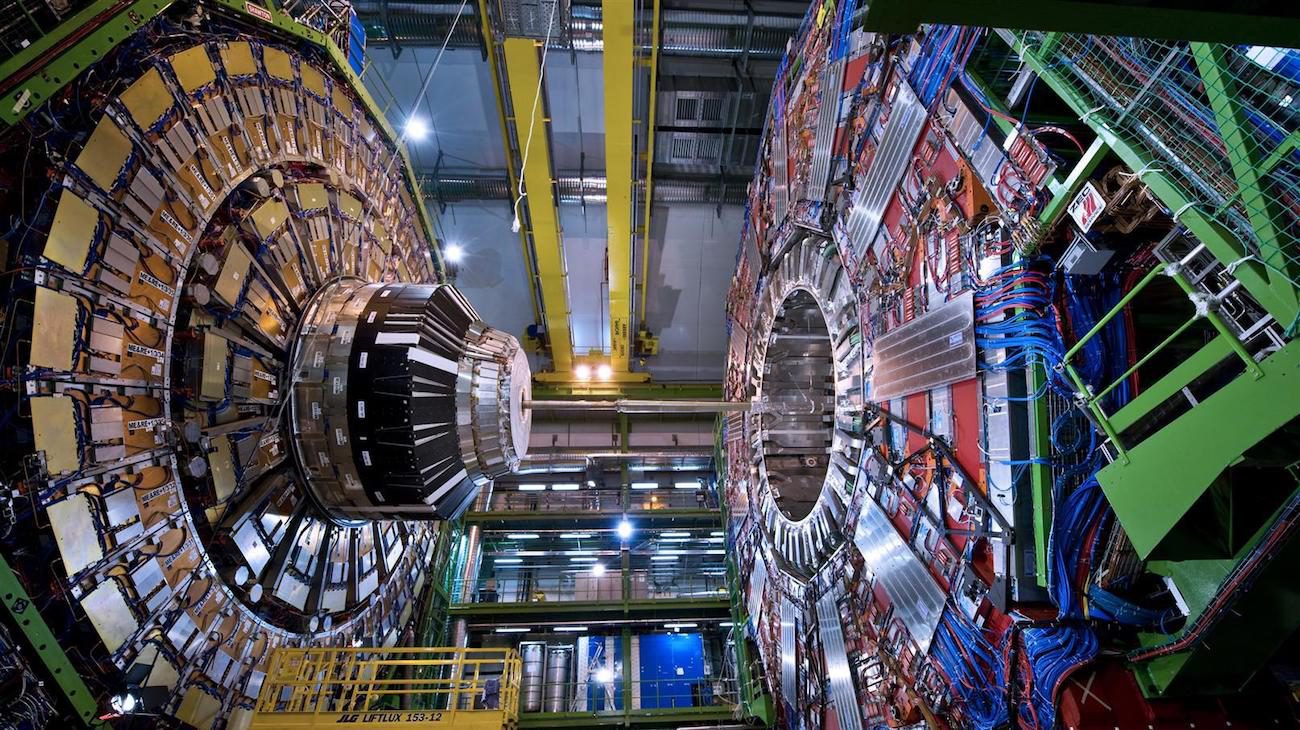
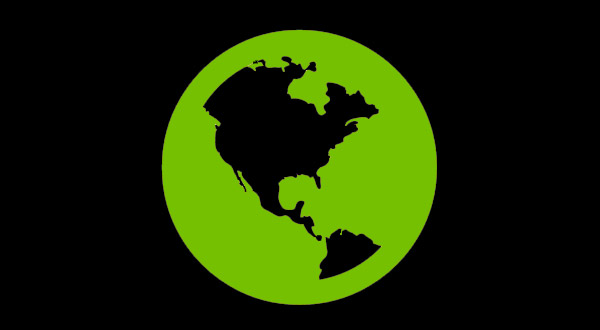
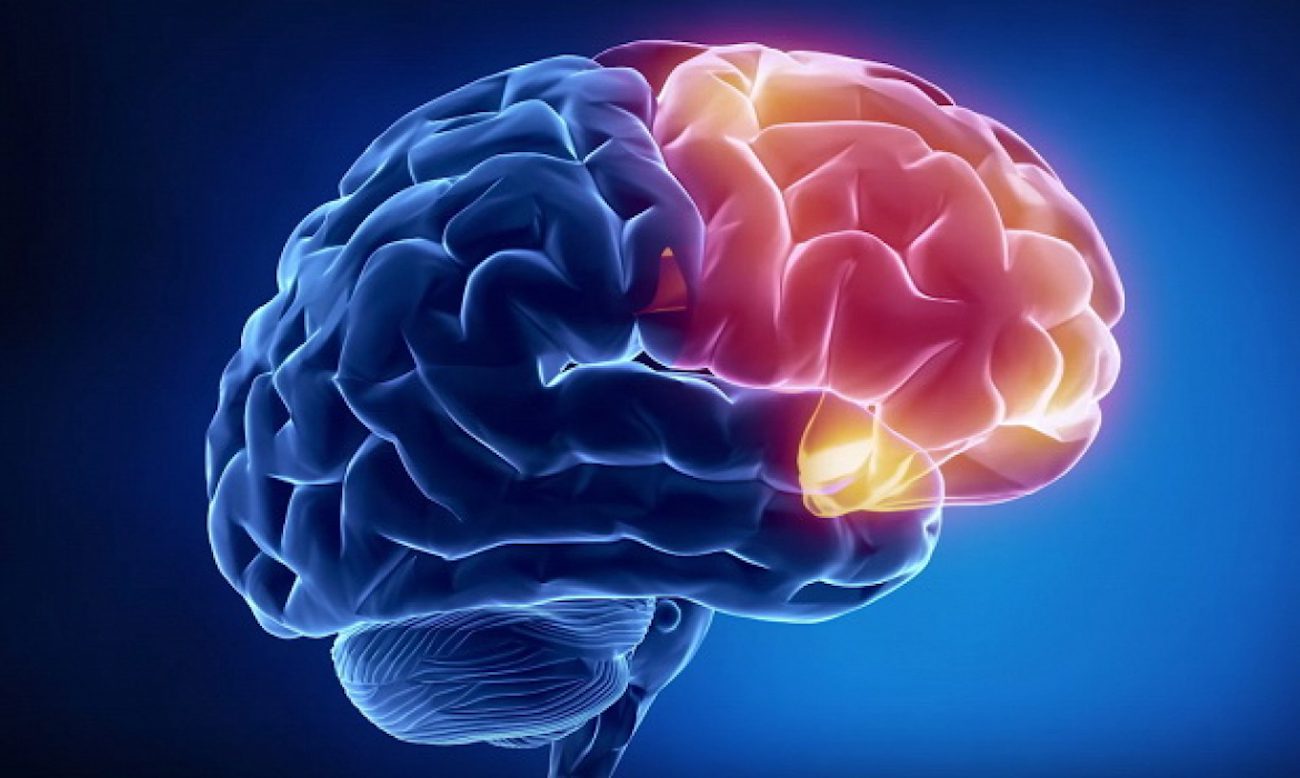

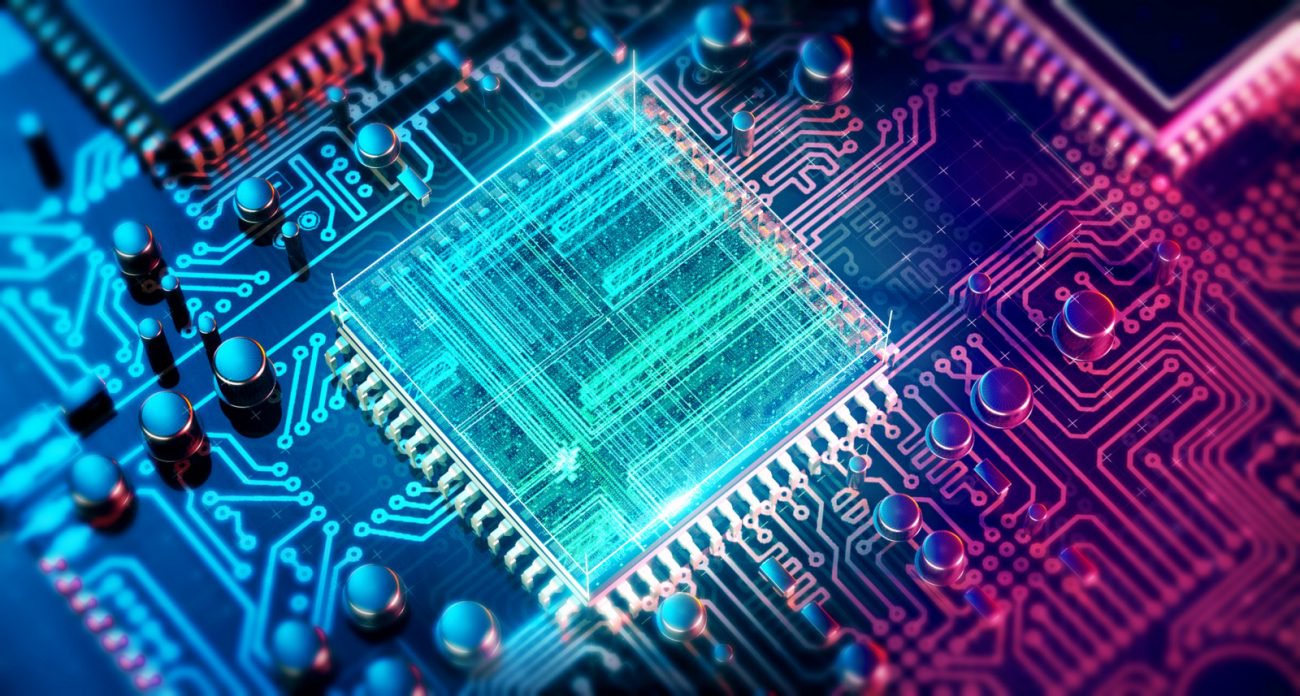













Comments (0)
This article has no comment, be the first!